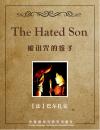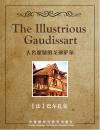Early in the autumn of 1826 the Abbe Birotteau, the principal personage of this history, was overtaken by a shower of rain as he returned home from a friend's house, where he had been passing the evening. He therefore crossed, as quickly as his corpulence would allow, the deserted little square called "The Cloister," which lies directly behind the chancel of the cathedral of Saint-Gatien at Tours.
The Abbe Birotteau, a short little man, apoplectic in constitution and about sixty years old, had already gone through several attacks of gout. Now, among the petty miseries of human life the one for which the worthy priest felt the deepest aversion was the sudden sprinkling of his shoes, adorned with silver buckles, and the wetting of their soles. Notwithstanding the woollen socks in which at all seasons he enveloped his feet with the extreme care that ecclesiastics take of themselves, he was apt at such times to get them a little damp, and the next day gout was sure to give him certain infallible proofs of constancy. Nevertheless, as the pavement of the Cloister was likely to be dry, and as the abbe had won three francs ten sous in his rubber with Madame de Listomere, he bore the rain resignedly from the middle of the place de l'Archeveche, where it began to come down in earnest. Besides, he was fondling his chimera,—a desire already twelve years old, the desire of a priest, a desire formed anew every evening and now, apparently, very near accomplishment; in short, he had wrapped himself so completely in the fur cape of a canon that he did not feel the inclemency of the weather. During the evening several of the company who habitually gathered at Madame de Listomere's had almost guaranteed to him his nomination to the office of canon (then vacant in the metropolitan Chapter of Saint-Gatien), assuring him that no one deserved such promotion as he, whose rights, long overlooked, were indisputable.
本书属于《人间喜剧》中外省生活场景的一部分。本书以独身者的生活为题材,通过一个老处女和两个教士之间的摩擦,揭示了外省贵族与日益得势的资产阶级之间的矛盾及教会内部的宗派斗争。表面上冲突局限于生活琐事,背后却隐藏着重大的利害关系:阴险奸诈的脱鲁倍神甫利用老小姐打击忠厚老实的皮罗托神甫,为的是对已故沙帕鲁神甫施行报复,彻底肃清其势力和影响,确立自己在本地区的权势。
From Lost Illusions. Scenes From Provincial Life from The Human Comedy (La Comedie Humaine). By the French author, who, along with Flaubert, is generally regarded as a founding-father of realism in European fiction. His large output of works, collectively entitled The Human Comedy (La Comedie Humaine), consists of 95 finished works (stories, novels and essays) and 48 unfinished works. His stories are an attempt to comprehend and depict the realities of life in contemporary bourgeois France. They are placed in a variety of settings, with characters reappearing in multiple stories.
- I
- II
- III
- IV
- 书评 写书评
- 笔记
-
书评加载中...




201410291508528591159.jpg)





20141029150519282424.jpg)

20141029150733785522.jpg)
 京公网安备 11010802032529号
京公网安备 11010802032529号
笔记加载中...